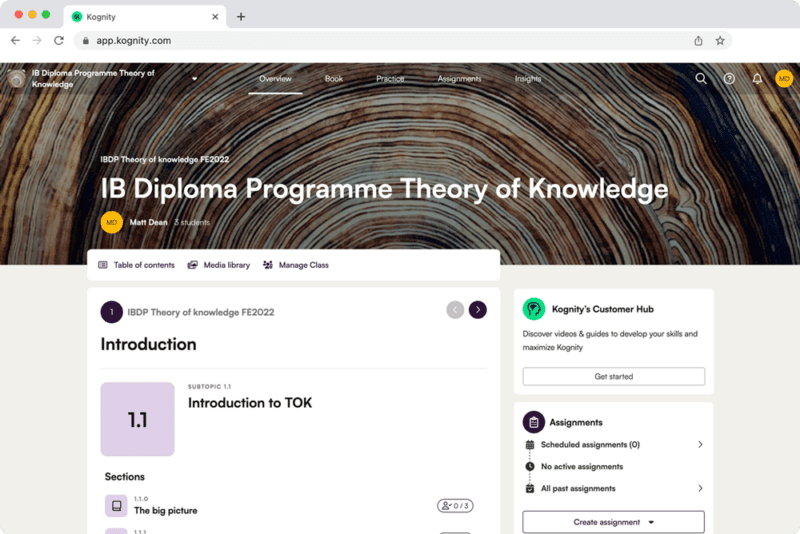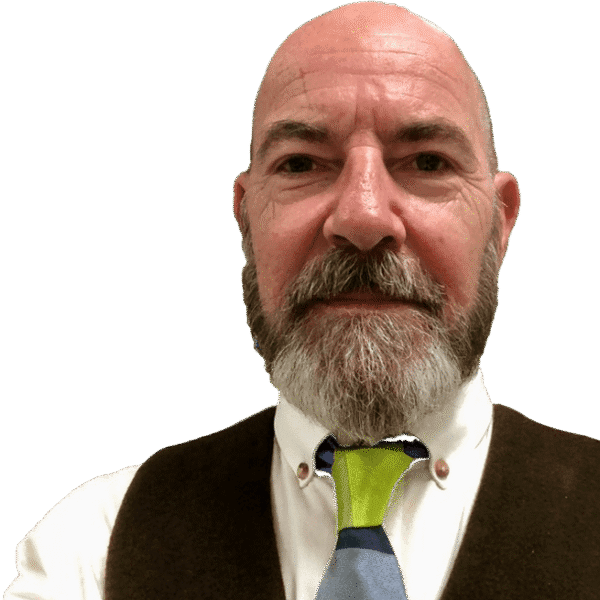David Spooner • 08/10/2025 • 3 min read
Beyond the Classroom: Why TOK’s True Value Emerges Later in Life
When they’re wrapped up in the various demands of the IB Diploma Programme, students (and let’s be honest, even teachers) sometimes weigh the value of a subject by its direct contribution towards those all-important 45 points on offer.
If you look at it this way, Theory of Knowledge (TOK) amounts to a pretty meagre portion of “bonus points” in the DP. It can end up something of a “sacrificial lamb,” rather than getting its due as a core pillar. But what if TOK’s most profound impact isn’t seen until years after graduation?
During our chat on the IB Unplugged podcast, David Spooner, a veteran TOK educator, shared a compelling perspective on TOK’s true, long-term worth.
David confesses his “indifference” to TOK’s point value in the matrix, because he knows something 16-year-olds can’t yet grasp: the real benefits of TOK reveal themselves much later.
The Power of ‘How’: A Lasting Legacy
David notes that when former students return years later, they rarely remember specific content from their chemistry or literature classes.
What sticks with them, however, isn’t what he taught in TOK, but how he taught them to think. It’s the “pedagogical approach” – the experience of reflecting critically on their learning – that truly stays with them.
“It’s not the content that they learn… that they remember,” David states, “but how their experiences of doing TOK… allowed them to reflect critically on what they were learning in their other subjects. That’s what they carry with them.”
This “critical reflection”—which David simply calls “thinking”—is invaluable. It’s the ability to self-examine, to challenge one’s own biases, and to relentlessly ask: “On what basis are you justifying your knowledge claim?”
These aren’t just academic exercises; they are life skills. They empower students in their Internal Assessments (IAs) and Extended Essays, yes, but more importantly, they equip them for a world that demands continuous, thoughtful inquiry.
Of course, convincing a driven DP1 student that TOK’s benefits are a long-term investment can be a tough sell; they’re focused on the immediate, tangible rewards. But from Spooner’s perspective, this just means we, as educators, need to meet them where they are.
He suggests leveraging their utilitarian mindset by showing them how TOK’s critical reflection can directly improve their performance on other, more high-stakes assessments.
By embedding TOK’s core questions into lessons on IAs and the Extended Essay, educators can demonstrate how a TOK mindset isn’t just a life skill, but a tool for achieving a higher score.
Ultimately, we can bridge the gap between today’s grades and tomorrow’s gains, all while proving that a TOK mindset is one of the most valuable tools they’ll ever acquire.
Kognity: Fostering Long-Term Thinking, Today
At Kognity, we echo David’s commitment to fostering deep understanding and long-term skills. Our IB DP Theory of Knowledge resources are designed to encourage exactly the kind of lasting critical reflection that David champions.
By using Kognity’s features to efficiently master core concepts, students gain valuable time to engage with the deeper, more reflective aspects of TOK – the very parts that contribute to their long-term intellectual growth.

Blog articles




